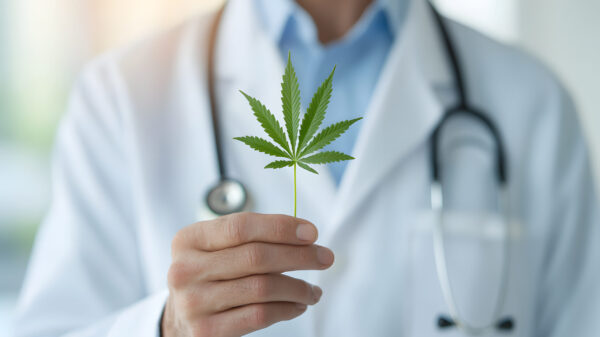State legislators will likely soon consider bills establishing a new state agency to improve Public Health by establishing the Compassion Act, creating an Alabama Medical Cannabis Commission, and amending ancillary law.
I wholeheartedly approve such efforts, yet that wasn’t always the case.
Years of waffling whether cannabis had any value whatsoever troubled me professionally. It gave rise to global narco-trafficking cartels, illicitly fueling an exorbitantly costly, deadly, and prolonged taxpayer-funded War on Drugs. Only later I learned that in 2016 writer Dan Baum interviewed Nixon Domestic Policy Advisor and Watergate co-conspirator John Erlichman who acknowledged that it was exclusively a political re-election tool concocted by the Nixon administration, and said “Did we know we were lying about the drugs? Of course we did.”
Now, I am permanently settled upon the matter: Cannabis, like alcohol, should be legalized, taxed and regulated for Medical, and Adult Recreational Use.
The DEA’s “Drugs of Abuse” 2017 resource guide officially acknowledged that, “No deaths from overdose of marijuana have been reported.” Not so of alcohol.
Scientific and sociological evidence is more than overwhelming: While not completely innocuous, cannabis has exceedingly far less risks associated with its consumption than alcohol. Even water has risks; one can drown in it, or die from water intoxication (excessive consumption in a short time). We cannot fully escape risk, but can and should manage it. “Just say no” has never worked, and “nanny state” prohibitions cannot continue.
Cannabis prohibition remains costly.
Alabama taxpayers have long expended on average at least $22 million annually to enforce cannabis prohibition, to the detriment of solved crimes. ALEA states that in 2016, the TOTAL value of all stolen property was $257,279,623 with only 17 percent recovered. Property Crimes accounted for 85 percent of all crimes, with only a 22 percent Clearance Rate, while the 2012-2016 average rate for ALL crimes was only 25 percent. Clearly, something is wrong when Alabama’s Law Enforcement agencies cannot solve 88 percent of all Property Crimes, which account for 85 percent of all crimes – with 3 out of 4 crimes remaining unsolved.
A cynical view would be that Alabama’s Law Enforcement is either ineptly incompetent, or that priorities are misplaced with inordinate focus upon “shooting fish in a barrel” by continuing cannabis prohibition, arrests and prosecutions. It could hardly be both.
The Department of Forensic Sciences reported a 9-month backlog of nearly 10,000 pending cannabis cases as of March 31, 2018 – to the detriment of DNA/biology cases for 1121 serious crimes such as homicide, sexual assault, and robbery.
Western University Economics Researchers found that Alabama taxpayers’ total averaged cost of cannabis prohibition from 2000-2010 was $219,000,000.
Three years after Maine decriminalized cannabis in 1976, a time/cost analysis found substantially positive results including reduced court/prosecution burden, reduced incarceration costs, and increased coffers from imposition of civil penalties in lieu of prosecution – they actually made money.
In unrelated studies, Washington State University and University of Bologna, Italy researchers found legalization, taxation, and regulation of cannabis for Medical and Adult Recreational Use resulted in decreased crime, Clearance Rate increases for burglaries and vehicle thefts, and that “recreational cannabis caused a significant reduction in rapes and thefts.”
This is not to say that cannabis-associated law enforcement will disappear once cannabis is legalized, taxed, and regulated, for it will not. It will, however, significantly reduce taxpayers’ burdens in Law Enforcement, Judicial, and Corrections costs, and free up valuable time and resources to focus upon solving serious crime.
Entrepreneurship, job creation, and revenue expansion via voluntary taxes upon a presently-illicit industry can be a largely self-sustaining, revenue-generating mechanism to supplement already badly-strained, and often inadequate, state and local resources. By legalizing, taxing, and regulating the Medical and Adult Recreational Use of cannabis, the state will empower itself to exercise increased, exact, and precise control over an already out-of-control, unregulated, untaxed underground business enterprise. It’s overtime to transform a liability into an asset.
Neither decriminalization nor legalization have increased underage use, nor DUIs. Rather, the opposite has occurred, and annual SAMHSA studies since 1975 have shown stable-to-declining use rates, say “most teens aren’t smoking marijuana,” that “5 out of 6 12-17 year olds have never tried marijuana,” and in Health Barometer: Alabama, Volume 4, found “Alabama’s average percent of marijuana use among adolescents ages 12-17 was lower than national average.” NSDUH found Alabama Teens’ Perceived Disapproving Attitudes 2002-2014 for peer use once or twice averaged 84.2 percent, despite the fact that a majority found availability “fairly” or “very easy.
Clearly, youth are not, and have not been using marijuana as some would have us believe.
Alabama’s problems are myriad, but wise solutions can be found, and it is up to us to improve our beloved state’s lot in life by actively participating in the process and educating ourselves, rather than perpetuating ignorance and fearfully shirking responsibility.






















































